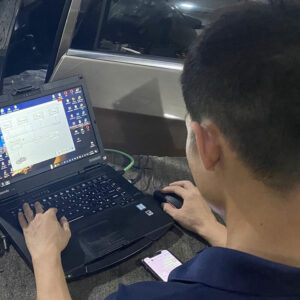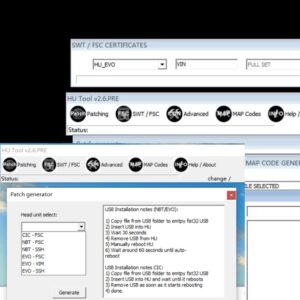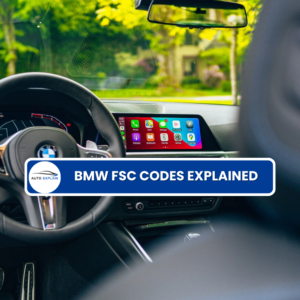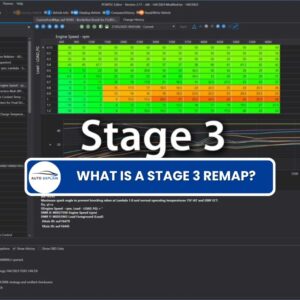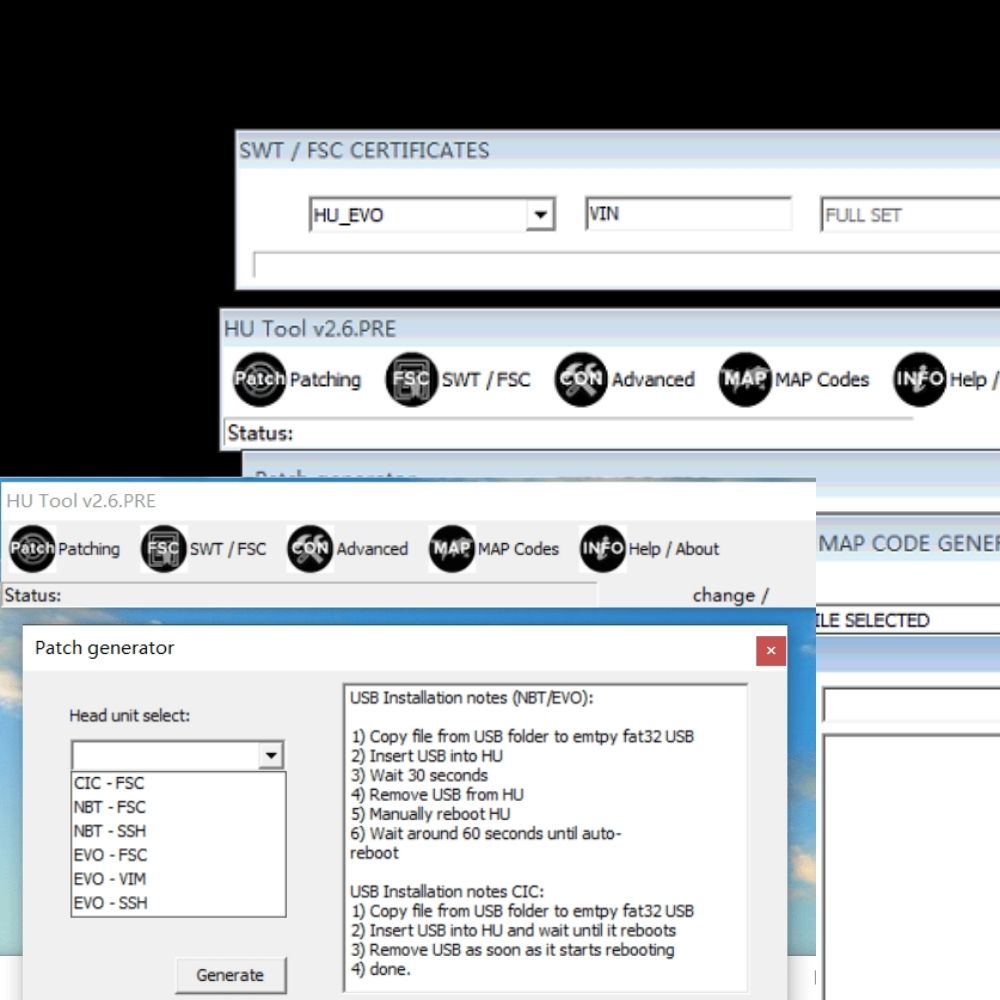
Code EJ Mercedes: Troubleshooting and Solutions
Code EJ Mercedes signifies a state that appears during radio code entry, not necessarily an error. AutoExplain.com provides in-depth diagnostics and remote programming services to resolve Mercedes-Benz electronic issues efficiently. This article examines the causes and provides robust solutions, highlighting our expertise in multimedia system support and electronic component programming.
Table of Contents
Toggle1. Understanding Code EJ on Mercedes Radios
The “EJ” displayed beneath “Code” on a Mercedes-Benz radio during code entry doesn’t automatically indicate a problem or a system freeze. Many users have successfully entered radio codes with “EJ” showing. If you encounter this, the issue is likely not the “EJ” itself, but rather an incorrect code or another underlying issue.
2. Common Scenarios and Initial Troubleshooting
2.1. Incorrect Code
The most common reason a radio code isn’t accepted is simply that the code entered is incorrect. This can happen if:
- The code was misread.
- The code provided by the dealership is wrong (though rare).
- The radio has been replaced.
2.2. Radio Replacement
A frequent problem is that the original radio has been replaced with another factory stereo. In this case, the original code for the car won’t work with the replacement radio. You’ll need the code specific to the serial number of the current radio installed in the vehicle.
2.3. Radio Losing its Code
Though less likely, especially in newer models, the radio might have “forgotten” its code due to age or a power interruption. This is more prevalent in older Mercedes models.
3. Step-by-Step Troubleshooting Guide
3.1. Verifying the Radio Code
3.1.1. Retrieve the Radio
The easiest method is to remove the radio and obtain its serial number. Radio removal tools are inexpensive and readily available online.
3.1.2. Locate the Serial Number
The serial number is typically found on a sticker on the radio’s casing. Note this number down carefully.
3.1.3. Use Online Verification Services
Numerous websites offer radio code verification services. These sites typically charge a small fee (around $8-$10) and will email you the correct code after you provide the radio’s serial number.
3.2. Addressing Code Entry Issues
3.2.1. Correct Entry Procedure
Make sure you’re entering the code correctly, following the exact sequence outlined in your owner’s manual.
3.2.2. Resetting the Radio
Some radios require a reset procedure if incorrect codes have been entered multiple times. Consult your owner’s manual or a Mercedes-Benz technician for the correct reset procedure.
3.2.3. Checking Power Supply
Ensure the radio is receiving adequate power. Check the fuses related to the radio and ensure they are not blown.
3.3. Professional Diagnostic Services
If you’re struggling to resolve the issue yourself, AutoExplain.com provides comprehensive diagnostic services. Our skilled technicians can remotely diagnose the problem and offer step-by-step instructions to resolve it.
4. Detailed Solutions to Common Problems
4.1. Dealing with a Replaced Radio
If you’ve confirmed that the radio has been replaced, obtaining the correct code for the new radio is crucial.
4.1.1. Obtain the Serial Number
As mentioned earlier, remove the radio and locate the serial number.
4.1.2. Use a Radio Code Service
Use an online radio code service, input the serial number, and purchase the correct code.
4.1.3. Enter the New Code
Carefully enter the new code into the radio, following the manufacturer’s instructions.
4.2. Addressing a Forgotten Code
If the radio has seemingly forgotten its code, there are a few potential solutions:
4.2.1. Power Cycling
Disconnecting the car battery for a period (e.g., 30 minutes) can sometimes reset the radio and allow you to re-enter the original code.
4.2.2. EEPROM Programming
In some cases, the radio’s EEPROM (Electrically Erasable Programmable Read-Only Memory) might need to be reprogrammed. This is a complex procedure that requires specialized equipment and expertise. AutoExplain.com offers EEPROM programming services to address this issue.
4.2.3. Head Unit Replacement
If all else fails, the head unit might need to be replaced. This is often the last resort, especially for older radios that have degraded over time.
5. Understanding Mercedes-Benz Radio Systems
5.1. Common Radio Models
Mercedes-Benz vehicles have used various radio models over the years, including Alpine, Becker, and more recently, Harman Kardon. Each model might have its own unique characteristics and troubleshooting steps.
5.2. Security Features
Mercedes-Benz radios have security features designed to prevent theft. These features include:
- Code Protection: Requires a code to be entered after a power loss or when the radio is moved to a different vehicle.
- Component Protection: In newer models, the radio is linked to the vehicle’s VIN (Vehicle Identification Number) and requires programming to function in another vehicle.
5.3. Radio Integration with Vehicle Systems
Modern Mercedes-Benz radio systems are integrated with other vehicle systems, such as the navigation system, climate control, and vehicle settings. This integration means that radio problems can sometimes be related to issues in other modules.
6. Advanced Diagnostic Techniques
6.1. Using Diagnostic Tools
Advanced diagnostic tools, such as the Mercedes-Benz Star Diagnosis system, can be used to read fault codes related to the radio and other multimedia components. These fault codes can provide valuable clues to the underlying problem.
6.2. Checking Communication Buses
Mercedes-Benz vehicles use communication buses, such as CAN (Controller Area Network), to allow different modules to communicate with each other. Problems with the communication bus can lead to radio issues.
6.3. Analyzing Wiring Diagrams
Understanding the wiring diagrams for the radio system can help you trace circuits and identify potential wiring problems, such as shorts or open circuits.
7. AutoExplain.com: Your Partner in Mercedes-Benz Diagnostics
At AutoExplain.com, we understand the complexities of Mercedes-Benz radio systems and other electronic components. We offer a range of services to help you diagnose and resolve radio code issues, including:
7.1. Remote Diagnostic Support
Our skilled technicians can remotely connect to your vehicle and perform diagnostic tests to identify the cause of the problem.
7.2. Radio Code Retrieval
We can retrieve the correct radio code for your Mercedes-Benz, even if you don’t have the original code card.
7.3. EEPROM Programming Services
We offer EEPROM programming services to reprogram the radio’s memory and resolve issues related to forgotten codes or corrupted data.
7.4. Software Updates
We can update the software in your radio to fix bugs and improve performance.
7.5. Component Protection Removal
We can remove component protection from radios that have been transferred from another vehicle, allowing them to function properly in your Mercedes-Benz.
8. Practical Tips for Radio Maintenance
8.1. Protecting the Radio Code
Keep your radio code in a safe place, such as the owner’s manual or a secure online account.
8.2. Battery Maintenance
Maintaining a healthy battery is essential for the proper functioning of the radio. A weak battery can cause the radio to lose its code or malfunction.
8.3. Avoiding Water Damage
Water damage can severely damage the radio. Avoid spilling liquids near the radio and protect it from moisture.
8.4. Regular Software Updates
Keep the radio’s software up to date to ensure optimal performance and fix any bugs.
9. Case Studies: Real-World Examples
9.1. Case Study 1: Code EJ Issue on a 2003 Mercedes-Benz C-Class
A customer contacted AutoExplain.com with a “Code EJ” issue on their 2003 Mercedes-Benz C-Class. They had obtained the radio code from the dealership, but the radio would not accept the code. Our technicians remotely connected to the vehicle and performed diagnostic tests. They discovered that the radio had been replaced with a used unit from another vehicle. We retrieved the correct radio code for the replacement unit, and the customer was able to enter the code and restore the radio’s functionality.
9.2. Case Study 2: Forgotten Radio Code on a 1998 Mercedes-Benz SLK
Another customer contacted us with a forgotten radio code on their 1998 Mercedes-Benz SLK. They had lost the original code card and did not know how to retrieve the code. Our technicians used our radio code retrieval service to obtain the code based on the radio’s serial number. The customer was able to enter the code and restore the radio’s functionality.
9.3. Case Study 3: Radio Malfunction Due to Corrupted EEPROM on a 2012 Mercedes-Benz E-Class
A customer reported that their radio was malfunctioning on their 2012 Mercedes-Benz E-Class. The radio would turn on, but no sound would come out. Our technicians suspected that the radio’s EEPROM might be corrupted. We offered our EEPROM programming service to reprogram the radio’s memory. After reprogramming the EEPROM, the radio started working properly again.
10. The Future of Mercedes-Benz Radio Technology
10.1. Integration with Smartphone Technology
Modern Mercedes-Benz radio systems are increasingly integrated with smartphone technology, such as Apple CarPlay and Android Auto. This integration allows drivers to access their favorite apps, music, and navigation services through the radio interface.
10.2. Over-the-Air Updates
Mercedes-Benz is now offering over-the-air software updates for its radio systems. These updates can fix bugs, improve performance, and add new features.
10.3. Artificial Intelligence (AI)
AI is being used to improve the functionality of Mercedes-Benz radio systems. AI can be used to personalize the radio experience, provide intelligent recommendations, and improve voice recognition.
11. Step-by-Step Guide to Removing a Mercedes-Benz Radio
Removing a Mercedes-Benz radio is a relatively straightforward process that can be accomplished with a few simple tools.
11.1. Gather the Necessary Tools
You will need the following tools:
- Radio removal tools (available online or at auto parts stores)
- A small screwdriver
- A soft cloth
11.2. Disconnect the Battery
Before starting any electrical work on your car, it’s essential to disconnect the battery to prevent electrical shocks or damage to the car’s electrical system.
11.3. Insert the Radio Removal Tools
Insert the radio removal tools into the slots on either side of the radio.
11.4. Gently Pull the Radio Out
Gently pull the radio out of the dashboard. You may need to wiggle the tools slightly to release the radio.
11.5. Disconnect the Wiring Harnesses
Once the radio is partially out, disconnect the wiring harnesses from the back of the radio.
11.6. Remove the Radio
Remove the radio from the dashboard.
12. Decoding Mercedes-Benz Radio Serial Numbers
Understanding the format of Mercedes-Benz radio serial numbers can be helpful in identifying the radio model and finding the correct radio code.
12.1. Common Serial Number Formats
Mercedes-Benz radio serial numbers typically consist of a combination of letters and numbers. Common formats include:
- ALxxxxxxxxx (Alpine)
- BExxxxxxxxx (Becker)
- CMxxxxxxxxx
12.2. Decoding the Serial Number
The first two letters of the serial number indicate the manufacturer of the radio. The remaining numbers are unique to the radio.
12.3. Using the Serial Number to Obtain the Radio Code
You can use the serial number to obtain the radio code from a Mercedes-Benz dealership or an online radio code service.
13. Addressing Component Protection Issues
Component protection is a security feature that prevents stolen radios from being used in other vehicles. If you install a used radio in your Mercedes-Benz that has component protection, the radio will not function properly until the component protection is removed.
13.1. Symptoms of Component Protection
Symptoms of component protection include:
- The radio will turn on, but no sound will come out.
- The radio will display a “Component Protection Active” message.
- The radio will not respond to commands.
13.2. Removing Component Protection
Component protection can be removed by a Mercedes-Benz dealership or a specialized automotive electronics service. The process typically involves reprogramming the radio to match the vehicle’s VIN. AutoExplain.com offers component protection removal services for Mercedes-Benz radios.
14. Navigating Mercedes-Benz Radio Menus and Settings
Understanding the menus and settings of your Mercedes-Benz radio can help you customize the radio to your preferences and troubleshoot common issues.
14.1. Common Menu Options
Common menu options include:
- Volume control
- Balance and fader control
- Tone control (bass, treble, midrange)
- Radio station presets
- CD player controls
- Bluetooth settings
- Navigation settings
- Vehicle settings
14.2. Customizing Radio Settings
You can customize the radio settings to your preferences, such as:
- Adjusting the volume levels
- Setting the tone controls
- Programming radio station presets
- Pairing your smartphone via Bluetooth
- Adjusting the navigation settings
- Configuring the vehicle settings
14.3. Troubleshooting Common Issues
You can use the radio menus to troubleshoot common issues, such as:
- Checking the speaker connections
- Adjusting the balance and fader controls
- Resetting the radio to factory settings
15. Integrating Aftermarket Audio Components
If you want to upgrade the audio system in your Mercedes-Benz, you can integrate aftermarket audio components, such as:
- Amplifiers
- Subwoofers
- Speakers
- Head units
15.1. Choosing the Right Components
Choose aftermarket audio components that are compatible with your Mercedes-Benz and meet your audio needs.
15.2. Professional Installation
Have the aftermarket audio components professionally installed to ensure proper functionality and avoid damage to your car’s electrical system.
15.3. Maintaining Compatibility
Ensure that the aftermarket audio components are compatible with the car’s existing features, such as steering wheel controls and the navigation system.
16. Understanding Mercedes-Benz Radio Error Messages
Mercedes-Benz radios may display error messages to indicate problems with the radio or related systems. Understanding these error messages can help you troubleshoot the issue.
16.1. Common Error Messages
Common error messages include:
- “NO SIGNAL”
- “CD ERROR”
- “NO DISC”
- “BLUETOOTH ERROR”
- “COMPONENT PROTECTION ACTIVE”
16.2. Troubleshooting Error Messages
Troubleshooting error messages may involve:
- Checking the antenna connection
- Inspecting the CD player
- Verifying the Bluetooth connection
- Removing component protection
16.3. Seeking Professional Assistance
If you are unable to resolve the error message, seek professional assistance from a Mercedes-Benz dealership or a specialized automotive electronics service.
17. Optimizing Radio Reception
Poor radio reception can be caused by various factors, such as a weak antenna signal or interference from other electronic devices.
17.1. Checking the Antenna Connection
Ensure that the antenna connection is secure and free from corrosion.
17.2. Inspecting the Antenna Cable
Inspect the antenna cable for damage or breaks.
17.3. Using an Antenna Amplifier
Use an antenna amplifier to boost the antenna signal.
17.4. Minimizing Interference
Minimize interference from other electronic devices, such as cell phones and GPS devices.
18. Frequently Asked Questions (FAQ)
18.1. What does “Code EJ” mean on my Mercedes radio?
“Code EJ” typically indicates the radio is in code entry mode and doesn’t necessarily signify an error.
18.2. How do I retrieve my Mercedes radio code?
You can retrieve your radio code by contacting a Mercedes-Benz dealership or using an online radio code service. You’ll need the radio’s serial number.
18.3. Can I enter the radio code myself?
Yes, you can enter the radio code yourself by following the instructions in your owner’s manual.
18.4. What if I enter the wrong radio code multiple times?
Entering the wrong radio code multiple times may lock the radio. You may need to wait a period of time or perform a reset procedure to unlock it.
18.5. What is component protection?
Component protection is a security feature that prevents stolen radios from being used in other vehicles.
18.6. How do I remove component protection?
Component protection can be removed by a Mercedes-Benz dealership or a specialized automotive electronics service.
18.7. Can I upgrade the audio system in my Mercedes-Benz?
Yes, you can upgrade the audio system in your Mercedes-Benz by integrating aftermarket audio components.
18.8. What are some common Mercedes-Benz radio error messages?
Common error messages include “NO SIGNAL,” “CD ERROR,” “NO DISC,” “BLUETOOTH ERROR,” and “COMPONENT PROTECTION ACTIVE.”
18.9. How do I improve radio reception in my Mercedes-Benz?
You can improve radio reception by checking the antenna connection, inspecting the antenna cable, using an antenna amplifier, and minimizing interference.
18.10. Where can I find more information about Mercedes-Benz radio systems?
You can find more information about Mercedes-Benz radio systems in your owner’s manual, online forums, and by contacting a Mercedes-Benz dealership or a specialized automotive electronics service like AutoExplain.com.
19. Conclusion
Dealing with Code EJ Mercedes radio issues can be frustrating, but understanding the potential causes and solutions can help you resolve the problem effectively. Whether it’s retrieving a lost code, addressing component protection, or upgrading your audio system, AutoExplain.com is here to provide expert support and guidance.
Don’t let radio problems disrupt your driving experience. Contact AutoExplain.com today for professional assistance and get back to enjoying your Mercedes-Benz to the fullest, our expertise in mercedes multimedia repair and mercedes audio coding ensures a swift resolution.
Need immediate assistance with your Mercedes-Benz radio code or other electronic issues? Contact AutoExplain.com via WhatsApp at +1(936)2896695 or email us at [email protected]. Our office is located at 4590 Angus Road, New York, United States. Visit AutoExplain.com for more information.

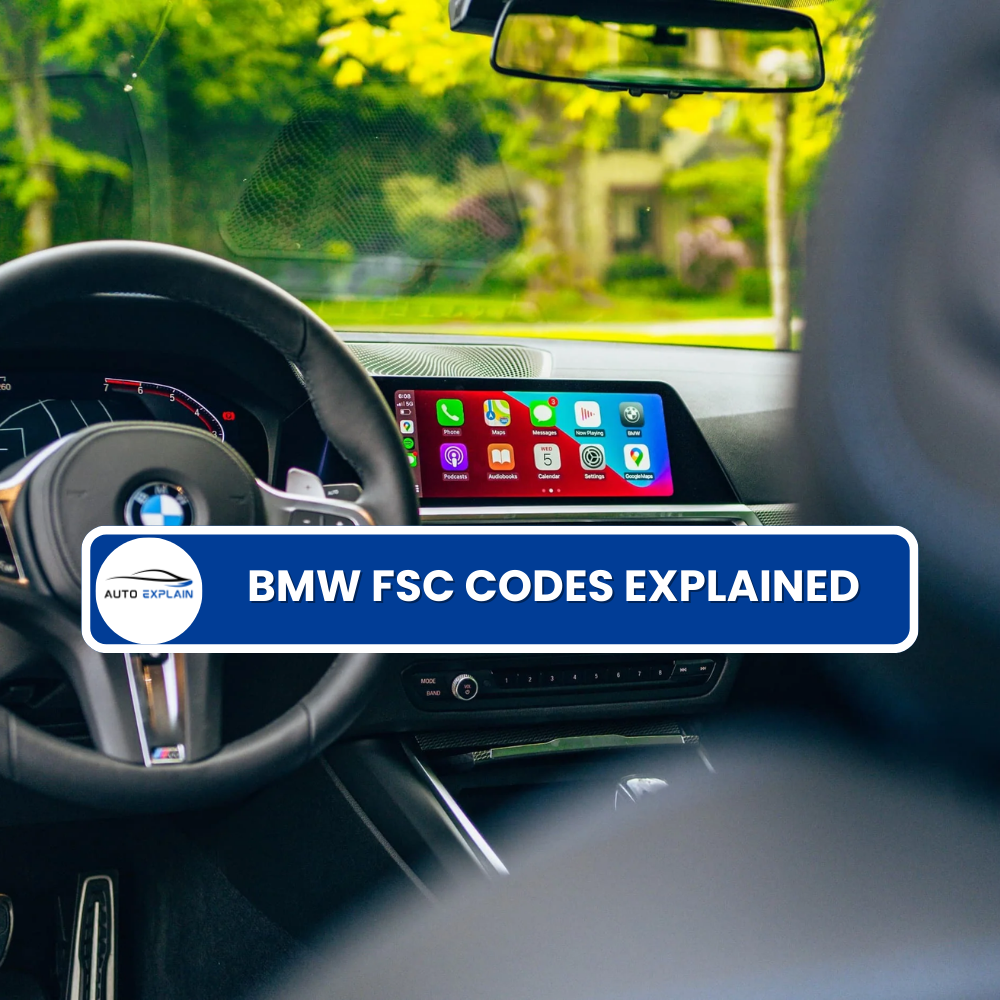
BMW FSC Codes Explained: Full FSC Code List for F-Series
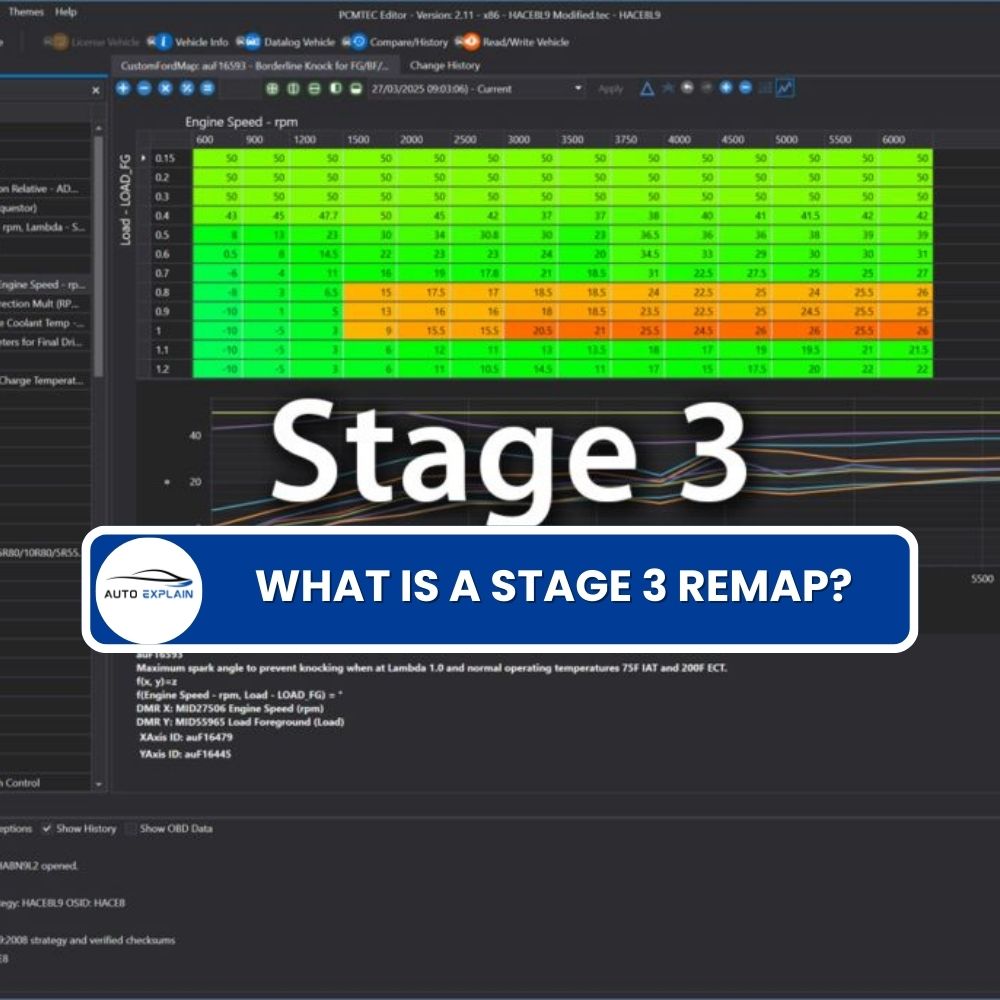
What is a Stage 3 Remap?
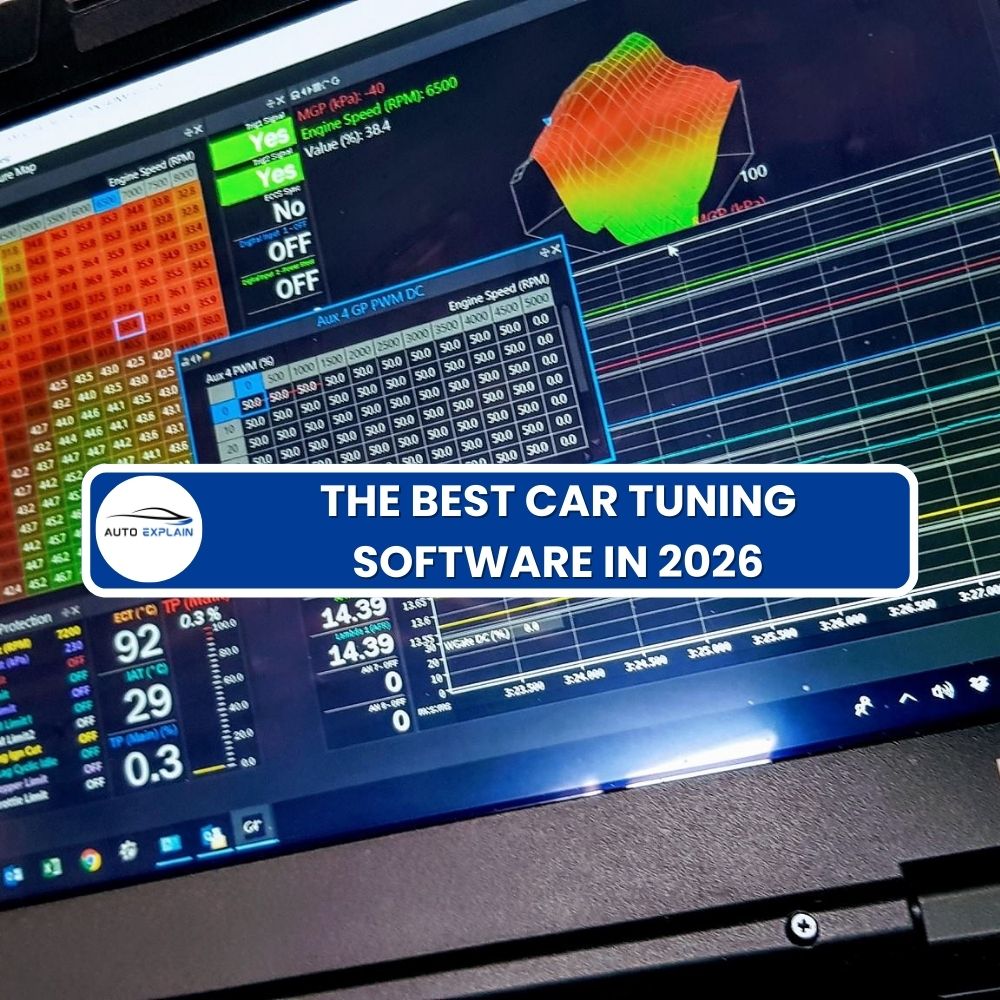
The Best Car Tuning Software in 2026: A Comprehensive Guide for Professionals



